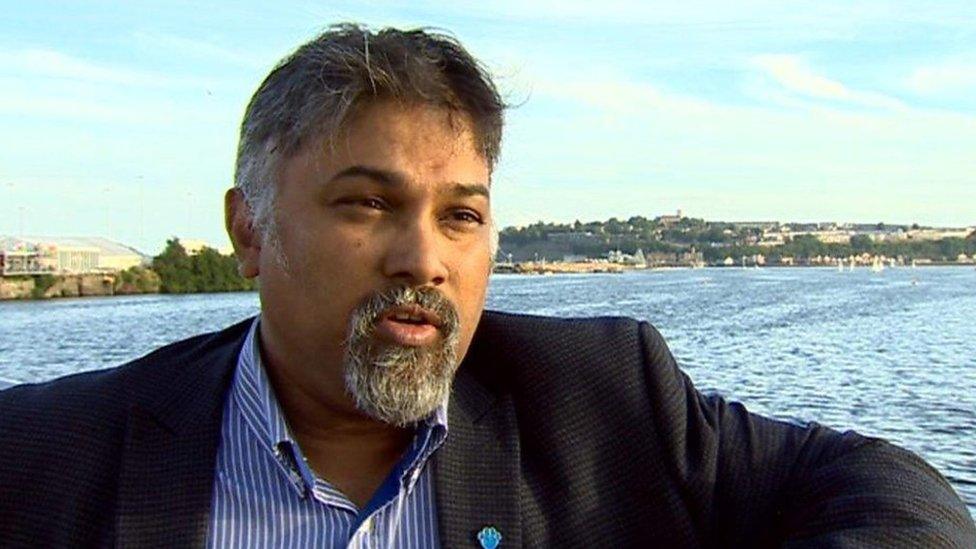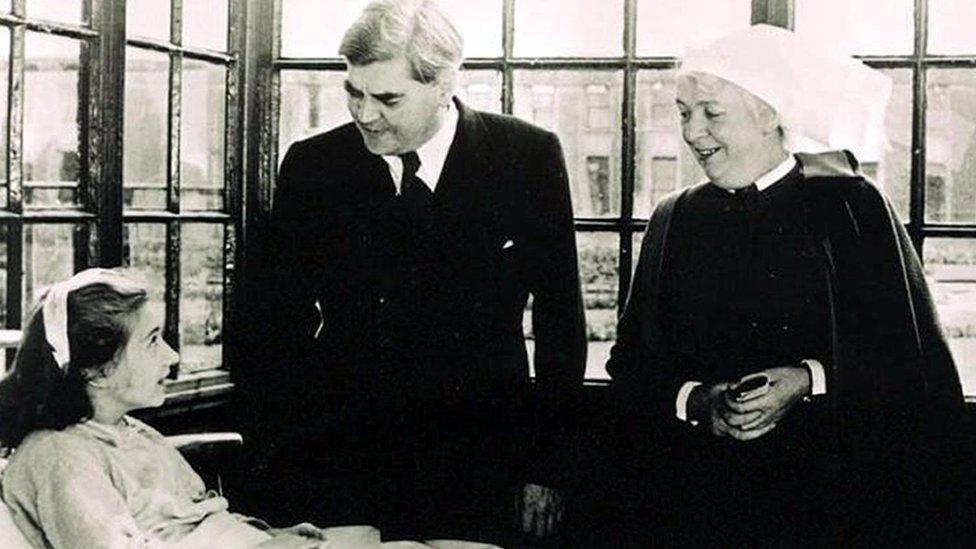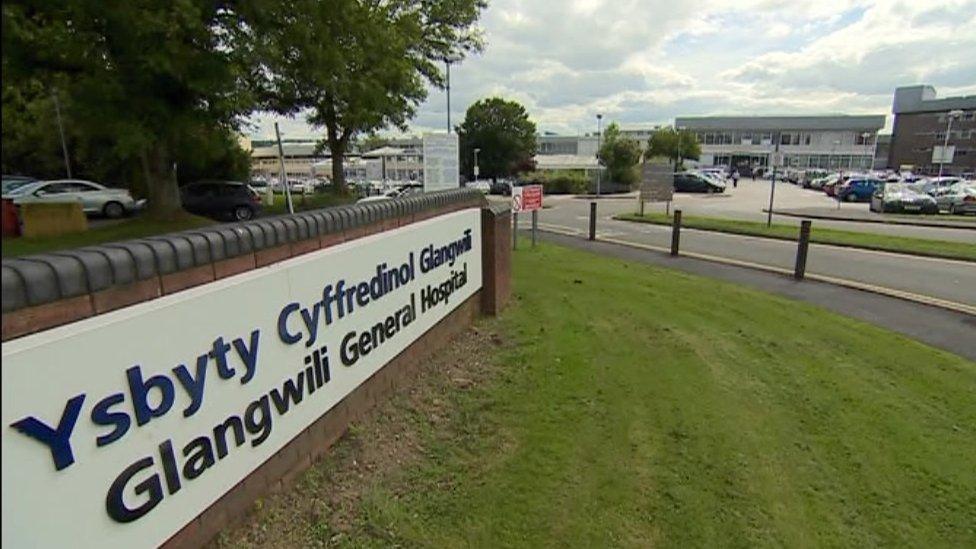GPs out-of-hours: 'Money and begging emails not filling gaps'
- Published
Dr Mohan De Silva explains what life is like as an out-of-hours GP
Extra cash and "begging emails" are failing to attract enough GPs to work in out-of-hours care, a report has found.
AMs on the Public Accounts Committee have expressed deep concerns over the low morale of doctors working late nights and weekends.
One health board in west Wales offered £16,000 in incentives to fill gaps to work one weekend, to no effect.
The Welsh Government said it was attracting more GPs to work in Wales.
Evidence gathered by the committee suggested while pay was a concern, the main issue was staff having to work by themselves - a problem magnified in rural areas where GPs often cover vast areas.
Hywel Dda University Health Board - which serves Carmarthenshire, Pembrokeshire and Ceredigion - offered £16,000 in incentives to fill shifts on one particular weekend, but failed to secure any additional cover.
The same health board was forced to close 99 out-of-hours centres between May 2017 and March 2019 due to staffing shortages.
The British Medical Association (BMA) told the committee its members "regularly receive begging emails and texts from out-of-hours service coordinators, asking them to work shifts" but the "gaps still persist".

'It's all about recruitment'

From medical school to qualifying as a GP takes at least 10 years
Pembrokeshire family doctor Owen Cox has been a GP for 32 years. He has just turned 60 and that means he is stepping back from out-of-hours work.
After a lifetime serving his community in Pembroke Dock, he is convinced the problem facing out-of-hours is simple to pinpoint, but finding a solution is not so easy.
"The problem is a reflection of general recruitment issues in general practice," he said. "There just isn't the manpower.
"A lot of people are blaming the health authority or the Welsh Government, but it really is a problem of long-term planning."
He points to the wave of GPs recruited in the 1960s who are now retiring, without enough new doctors entering the profession.
For Dr Owen there has also been a sea change in what being a GP means - with more emphasis on the family doctor having a life outside of their surgery.
"I'm from a different generation of general practitioners, from when it was a full-life vocation," he added.
"Today it is a job rather than a full life vocation - and I think that is the right thing. But it now means you can choose the one thing or the other."

The BMA said it had been "inundated with stories from our members citing issues with shift-filling and trouble across a wide geographical area in out-of-hours coverage".
One member told the organisation one nurse practitioner has been left in charge across two hospitals, "covering around 280,000 patients".
Public Accounts Committee members said they were "extremely concerned that there are enduring issues which are making out-of-hours services unattractive places to work".
The report said the evidence showed "improving staff morale has little to do with offering financial incentives".
Committee chairman, Tory AM Nick Ramsay, said: "People don't just fall ill or hurt themselves between 9am and 5pm, so out-of-hours services are an essential part of the NHS in Wales".
The committee said there were examples of health boards taking a different approach, often with "multi-disciplined teams" to share the load.
A Welsh Government spokesman said: "Our Train Work Live, external campaign is helping to attract more GPs to Wales. Work is also being undertaken by clinical leaders to encourage GPs to work in out-of-hours by making it a more attractive place to work."
He added the new model for out-of-hours was "increasingly based around multi-disciplinary team working that are less reliant on GPs".
- Published2 August 2018

- Published2 August 2018

- Published26 June 2018

- Published12 May 2018
